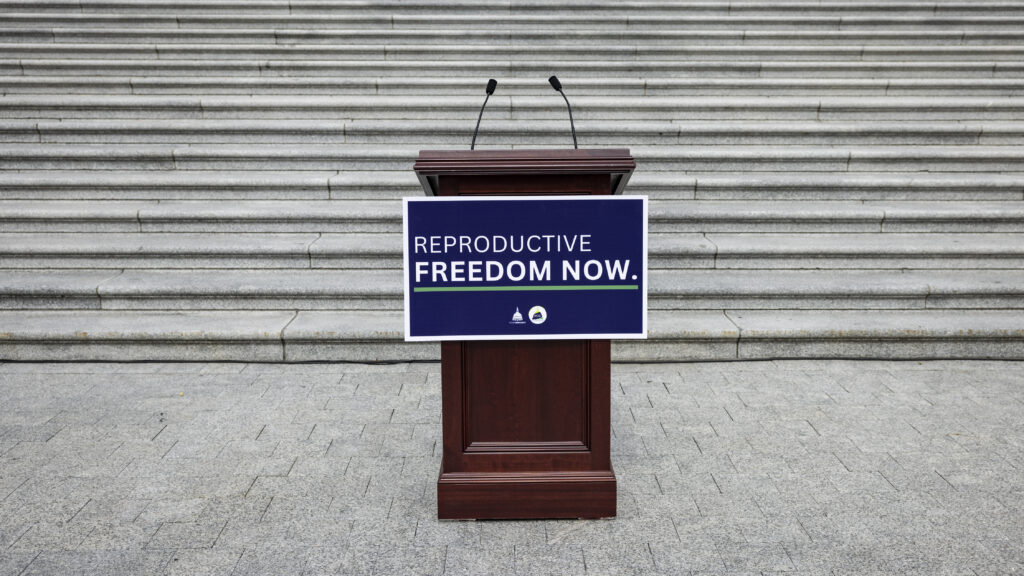WASHINGTON — The Supreme Court this month handed President Biden a pair of wins on abortion rights — but they could be short-lived.
The court made two major decisions about abortion that preserved or expanded access to reproductive health care for now, but teed up an even sharper debate about reproductive rights that will play out in November’s elections.
advertisement
In one case, the court tossed out a suit seeking to limit access to the abortion pill mifepristone. In the other, the court allowed emergency abortions in Idaho. But lower courts are continuing to weigh both issues, and they could ultimately wind their way back to the Supreme Court after appeals, though that isn’t likely to happen before November.
“If there’s one thing that I want to make abundantly clear about both the EMTALA and mifepristone cases, it’s that neither were wins for abortion rights,” Alexis McGill Johnson, president and CEO of Planned Parenthood, told reporters. EMTALA is the emergency medical care law at issue in the Idaho case.
“Rather than issue clear rulings, they have left pathways for these decisions to come back to them later down the road, perhaps leaving it for when it’s more politically convenient to say the quiet part out loud again,” she said.
advertisement
The justices avoided larger questions about state laws in the wake of Roe v. Wade’s upheaval and avoided weighing in on a litany of state abortion restrictions — to the chagrin of multiple justices on separate sides of the issue.
“This is now in the hands of voters and in the hands of the electoral process,” Idaho state Rep. Ilana Rubel, a Democrat, told reporters. “The courts are not saving us.”
Ten states have abortion policies on the ballot this November. While most voters say it is not a top issue in deciding their vote, a majority of women voters say this year’s election will have a major impact on abortion access in their state, according to KFF polling.
Biden and former President Trump meet Thursday night for their first 2024 election debate. While Trump has emphasized states’ rights since the fall of Roe — and boasted that he installed three justices who signed onto the Dobbs decision that undid Roe — he has also lamented that certain states went too far with abortion bans and that members of his party “poorly handled” the issue during midterm elections.
During the debate, Trump may be asked to answer for the fallout. And the Biden campaign is ready to attack.
“Donald Trump did this. He put women’s lives in danger,” Lauren Miller, an obstetrician who used to work in Idaho, said in a new television advertisement the Biden campaign launched Thursday.
In a 6-3 decision just hours before the matchup, the Supreme Court ultimately dismissed Idaho’s effort to reverse a lower court’s injunction on the state’s near-total abortion ban. Biden’s administration argues the ban is illegal under federal emergency care requirements, known as EMTALA.
“[The EMTALA decision] does not change the fact that reproductive freedom is under attack,” HHS Secretary Xavier Becerra said in a statement Thursday. “When the Court overturned Roe v. Wade, it unleashed an unprecedented assault on reproductive rights, and every day we see the consequences.”
A vast majority of Americans say that abortion should be legal under most or certain circumstances, setting up a quandary for Republicans defending restrictions like Idaho’s law, which federal lawyers argue leaves a dangerous question about when a life-threatening condition is serious enough to warrant the procedure.
Justices heard from Biden administration lawyers in April that since Idaho implemented the law, one of the state’s largest hospitals has airlifted at least six pregnant women with serious complications to neighboring states to avoid run-ins with the law, which could penalize doctors providing care.
Federal lawyers argue the state’s law does not account for situations in which a patient was hemorrhaging, or facing loss of reproductive organs, but not in immediate danger of losing their life.
But some conservative justices questioned whether the Biden administration’s inclusion of abortion in emergency care requirements could open the door to federal encroachment on state laws.
Justice Samuel Alito also separately questioned the Food and Drug Administration’s authority to relax mifepristone’s prescribing rules, and in April arguments nodded to the Comstock Act, a 150-year-old law against mailing “obscene” material. The regulation, which Biden’s lawyer argued has been “defunct” since the 1930s, could reemerge in a new Trump presidency as another roadway to restricting mifepristone.
Some states have already made moves to restrict the medication. Louisiana this spring passed a law making mifepristone a controlled substance, closing the door for telehealth prescribing. Some state attorneys general have also said they plan to press ahead with a legal challenge to mifepristone access.
Ultimately, the court’s open-ended decisions leave room for more hospital confusion and unnecessarily perilous care, reproductive rights advocates argue.
Besides Idaho, 13 other states have enacted abortion bans; nearly half of U.S. states have implemented abortion restrictions since Roe was overturned.
Rubel, the Idaho state Democrat, said her party is exploring a ballot initiative to secure abortion access, but that it will not be ready for this year’s election cycle.
Asked about the presidential debate just a few hours away, and what she would like to hear from Trump on abortion policy, Rubel cited the departure of obstetricians from abortion-ban states, underscoring the thorny issue for Republicans heading into the election. “Is [he] proud of the impact that this has had on the health care landscape for women in red states?”

